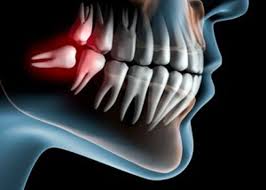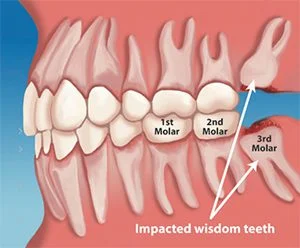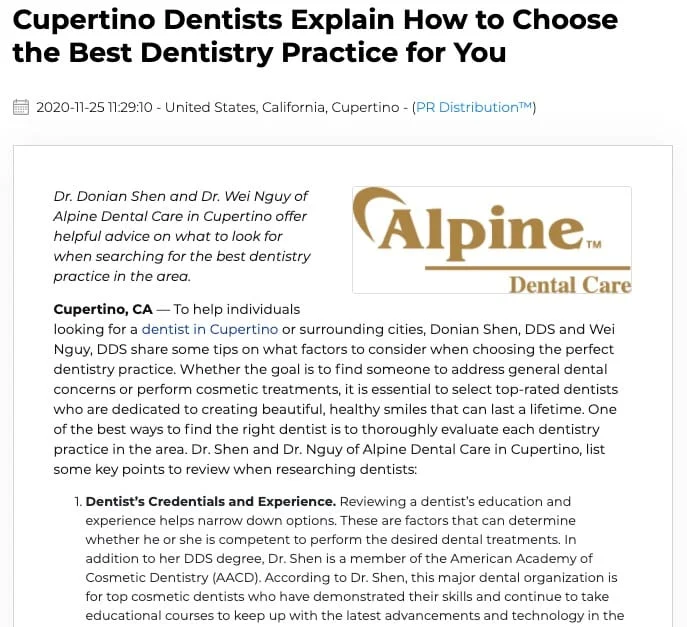 While almost everyone has wisdom teeth, most people will likely need to have one or more of them extracted at some point during their life. Various complications can arise as the wisdom teeth grow in, ranging from overcrowding to a failure to properly erupt through the gums at all. Wisdom teeth that grow in improperly or become “impacted” (stuck) can cause pain, infection, and other dental problems.
While almost everyone has wisdom teeth, most people will likely need to have one or more of them extracted at some point during their life. Various complications can arise as the wisdom teeth grow in, ranging from overcrowding to a failure to properly erupt through the gums at all. Wisdom teeth that grow in improperly or become “impacted” (stuck) can cause pain, infection, and other dental problems.
Our Cupertino dentists have extensive experience helping patients address wisdom tooth-related concerns, and we take a compassionate, conservative approach to treatment. Whether you know in advance that your wisdom teeth will require extraction or are experiencing a sudden dental emergency, our team can help relieve pain and safeguard your oral health. Contact us today to schedule an appointment with one of our providers.
- What Are Wisdom Teeth?
- Wisdom Teeth Impaction
- Why Are Wisdom Teeth Removed?
- Wisdom Teeth Extraction Procedure
What Are Wisdom Teeth?
Wisdom teeth are an extra set of molars (back teeth) that typically grow in as a person reaches their late teens or twenties. They are generally considered unnecessary for chewing and other dental functions, and most people do not have adequate room in their mouths to properly accommodate them. This lack of space often poses problems, causing the wisdom teeth to either crowd the rest of the teeth—potentially disrupting bite function—or become impacted beneath the gum or bone. Both scenarios can cause significant oral health issues over the long-term, which is why many dentists recommend having your wisdom teeth removed preemptively.
What Are Impacted Wisdom Teeth?
 Impacted wisdom teeth become “stuck” beneath other oral structures. Soft tissue impaction refers to cases where the crown of the wisdom tooth has erupted, but the majority of the tooth structure remains covered by the gum. Partial bony impaction describes cases where the tooth has partially erupted but still remains stuck inside the jawbone. A full bony impaction occurs when the wisdom tooth remains fully covered by the jawbone.
Impacted wisdom teeth become “stuck” beneath other oral structures. Soft tissue impaction refers to cases where the crown of the wisdom tooth has erupted, but the majority of the tooth structure remains covered by the gum. Partial bony impaction describes cases where the tooth has partially erupted but still remains stuck inside the jawbone. A full bony impaction occurs when the wisdom tooth remains fully covered by the jawbone.
When wisdom teeth are impacted, a number of oral health concerns can follow. Pain, swelling, and bleeding around the gums are all fairly common, and patients may also develop halitosis (bad breath). Impacted wisdom teeth can also be more difficult to clean, leading to a greater risk of tooth decay and infection. Even seemingly asymptomatic impactions can harbor infection.
What Are the Most Common Reasons to Remove Wisdom Teeth?
The most common reason for wisdom tooth extraction is impaction, which can result in a number of potentially serious complications, including:
- Pain
- Swelling or bleeding around the affected tooth or teeth
- Overcrowding
- Periodontal (gum) disease
- Damage to or shifting of the surrounding teeth caused by pressure from the wisdom teeth
- Cysts, a tumor, or abscesses developing around the wisdom teeth
- Cavities or tooth decay
- Potential negative impacts on past, current, or future orthodontic treatment
While wisdom teeth are often removed in response to the above symptoms, they can also be extracted as a preventative measure in order to reduce your likelihood of developing future complications.
How Is the Wisdom Teeth Removal Procedure Performed?
The precise details of the wisdom teeth removal procedure will vary somewhat depending on the level of impaction you are experiencing, but treatment is generally performed on an outpatient basis so that you can begin your recovery in the comfort of your own home. Our dentists utilize various sedation dentistry techniques—such as IV sedation, Oral Conscious Sedation (OCS), or Nitrous Oxide (Laughing Gas)—to help keep you as comfortable as possible throughout the procedure.
Typically, incision(s) will be made along the gum line around the tooth or teeth being removed. From there, our dentists will carefully and meticulously extract the tooth before disinfecting the area and closing the incisions. Wisdom tooth removal is typically a fairly straightforward procedure, and we do everything in our power to make the process as comfortable and efficient as possible. Our dentists will provide you with detailed aftercare instructions to help optimize your recovery.
Ready to learn more about wisdom tooth removal? Contact Alpine Dental Care today to schedule a consultation.




